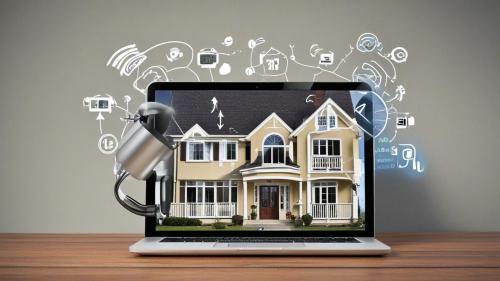In recent years, the landscape of home security has been dramatically altered by the integration of smart technology. With the rise of surveillance systems that can be monitored via smartphones and controlled through voice-activated devices, homeowners are afforded an unprecedented sense of safety and convenience. However, this evolution has ignited a contentious debate: How can we balance the need for security with the preservation of privacy?
As we delve deeper into this issue, it becomes clear that every camera lens and motion sensor placed on a property represents both a safeguard and a potential vulnerability. Homeowners are increasingly tasked with the challenge of setting their own boundaries – ones that determine not only the reach of their security measures but also their implications on personal and familial privacy.
The myth that ultra-modern security systems operate flawlessly without human oversight is a persistent one. In reality, these smart security devices require diligent management. Indeed, technology has bestowed upon us the near-magical ability to monitor our homes from afar; yet it is within this capability that we find new responsibilities. Are you ensuring that your software is regularly updated to protect against new vulnerabilities? Do you routinely review who has access to your system, and adjust permissions accordingly?
Moreover, while external threats are a significant concern, the internal impact of home surveillance cannot be overstated. How are these devices affecting the interpersonal dynamics within a household? Have discussions on the acceptable level of surveillance become a part of family conversations, akin to house rules? There lies an understated need to cultivate an environment where every member of a household feels safe both in a literal and figurative sense.
We've entered an era where technology of this kind cannot merely be labeled as either 'good' or 'bad.' Instead, our responsibility is to shape it ethically and constructively. It's not uncommon for some residents to feel apprehensive about the presence of cameras that might record them even in their most mundane activities, leading to an erosion of comfort and trust at home.
Consequently, it becomes important for individuals to establish a thorough understanding of their systems – not just the how, but more importantly, the why of their operation. In evaluating the functionality of security systems, questions of necessity—what truly needs monitoring versus what may overshoot reasonable measures—must be carefully examined. Balancing the threshold between helpful surveillance and excessive scrutiny often comes down to conscientious configuration and open dialogue.
While crafting this equilibrium, legal perspectives also warrant consideration. Varying laws regarding video and audio recording exist across different regions, underscoring the necessity for proactive legal compliance. Homeowners must remain informed about their rights in parallel with their duties, ensuring that their pursuit of safety does not inadvertently transgress the rights of others.
Indeed, the journey towards achieving this balance is replete with both challenges and opportunities. Opportunities for innovation and personalization in security solutions abound as companies continually push technological boundaries. But along this journey, ethical considerations must serve as compass points, guiding decisions that reconcile the seemingly opposing priorities of security and privacy.
In conclusion, modern home surveillance walks a fine line—one defined by the dual necessities of safeguarding our sanctuaries and honoring our privacy. It is a line that requires careful navigation by informed and engaged homeowners, committed to ensuring that the technologies designed to protect them are not inadvertently compromising their most valued senses of freedom and personal space.
Striving for this balance is not merely an endeavor for personal benefit; it reflects a broader societal movement toward thoughtfully embracing technology while preserving human dignity in the digital age.
Balancing Security and Privacy: Navigating Modern Home Surveillance




